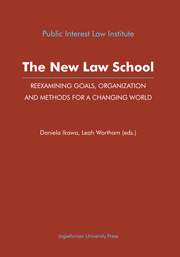Book contents
- Frontmatter
- Contents
- Preface
- Acknowledgments
- Introduction
- Part One Goals of Legal Education
- Part Two Law School Governance
- Part Three Optimal Academic Curricula and Teaching Methods
- Chapter 3 Interactive Teaching Methodologies in Ukrainian Legal Education: Balancing between State of the Art and a Newfangled Whim
- Chapter 4 The Challenges of Higher Legal Education in the Kyrgyz Republic and the Peculiarities of Educational Process at the AUCA Law Department
- Chapter 5 The Environmental Law Clinic: A New Experience in Legal Education in Spain
- Chapter 6 The Judicial Practice Center: The Connection between Theory and Socially Responsible Professional Practice
- Part Four The Academic Career in Law
- Appendix
Chapter 4 - The Challenges of Higher Legal Education in the Kyrgyz Republic and the Peculiarities of Educational Process at the AUCA Law Department
from Part Three - Optimal Academic Curricula and Teaching Methods
Published online by Cambridge University Press: 05 September 2014
- Frontmatter
- Contents
- Preface
- Acknowledgments
- Introduction
- Part One Goals of Legal Education
- Part Two Law School Governance
- Part Three Optimal Academic Curricula and Teaching Methods
- Chapter 3 Interactive Teaching Methodologies in Ukrainian Legal Education: Balancing between State of the Art and a Newfangled Whim
- Chapter 4 The Challenges of Higher Legal Education in the Kyrgyz Republic and the Peculiarities of Educational Process at the AUCA Law Department
- Chapter 5 The Environmental Law Clinic: A New Experience in Legal Education in Spain
- Chapter 6 The Judicial Practice Center: The Connection between Theory and Socially Responsible Professional Practice
- Part Four The Academic Career in Law
- Appendix
Summary
Introduction
In 1991, as Central Asian countries became independent, the region joined the fast-changing world of free markets and democracy. Leadership from a new generation provided a fresh perspective on how economic resources, information, and personal freedom could be nurtured in an open society. This wave of change spurred new ideas in the educational system, which resulted in the establishment of the Kyrgyz-American School (KAS) within the Kyrgyz State National University (KSNU) in Bishkek in 1993.
KAS experienced dramatic growth over the next four years. As a consequence, it could no longer remain a school within KSNU, and was poised to become an independent institution. In 1997, by decree of the President of Kyrgyzstan, KAS became the American University in Kyrgyzstan (AUK), and an independent, international Board of Trustees was established as the governing body.
AUK quickly gained an international reputation for being a university based on the American liberal arts tradition of free and critical inquiry. Soon after the university was set up, young scholars from all over the world arrived to help establish this new approach to education in Central Asia. In 2002, because the university planned to expand, the Board of Trustees changed the name in order to reflect the university's regional significance. From here on, it was called the American University of Central Asia (AUCA).
Since its establishment, the university has acquired a reputation for democratic values, individual freedom, and the spirit of innovation.
- Type
- Chapter
- Information
- The New Law SchoolReexamining Goals, Organization and Methods for a Changing World, pp. 57 - 64Publisher: Jagiellonian University PressPrint publication year: 2010



